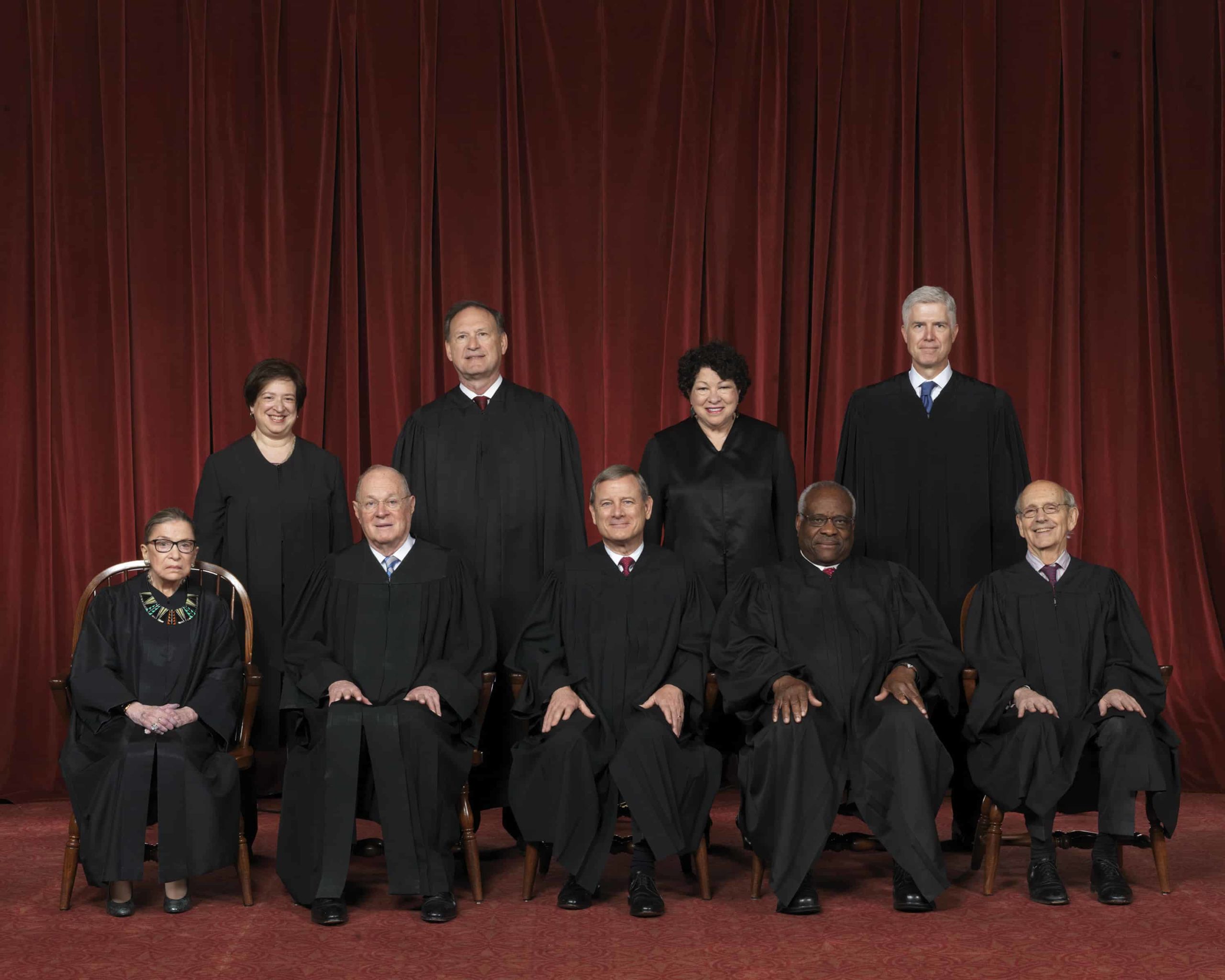U.S. Supreme Court Takes Up Sales Tax Case
The U.S. Supreme Court decided on Friday to take up the case by South Dakota in its dispute with three eCommerce companies on the collection of state sales tax.
South Dakota is appealing a lower court decision that favored Wayfair Inc, Overstock.com Inc and Newegg Inc. and is asking the justices to revisit the 1992 decision that companies with no nexus in a state are exempt from collecting sales tax.
The 1992 case, Quill Corp. v. North Dakota, 504 U.S. 298 (1992), effectively nullified any chance by a state to force mail order companies and eCommerce operators to collect sales that if they had no office or other physical connection in a state.
Recently, some states argued that Amazon’s FBA program provides the nexus that allows states to “force” online retailers to collect sales tax.
The Definition of Nexus and Fairness in Question
But Amazon, and others have been fighting this attempt for some time and without any new guidance from the hight court, there was a bit of a stand-off on this issue.
Some states banded together to try to coax online retailers to collect sales tax by dangling tax amnesty in exchange for voluntary collection and reporting of sales tax.
One of the reasons that South Dakota took up the charge on the sales tax enforcement issue is that the state does not have state income tax. So, it relies heavily on sales tax collection for its budget.
In 2016, the state enacted a law that required out-of-state retailers to collect sales, but it also knew the law would face legal challenges. But it was an opinion by Justice Anthony Kennedy in a Colorado case from 2015, that prompted South Dakota to give it a try.
In the opinion, Kennedy questioned the 1992 precedent set in the Quill Corp v. North Dakota case and said the high court should revisit the sales tax issue.
“Given these changes in technology and consumer sophistication, it is unwise to delay any longer a reconsideration of the court’s holding in Quill.”
Justice Anthony Kennedy
In a September 2017 ruling, the South Dakota Supreme Court ruled against the state, citing the 1992 precedent of Quill.
The National Retail Federation and 35 states urged the Supreme Court to take up the South Dakota appeal to bring clarity and fairness to the system. The retail group believes that new advances in technology and software no longer warrant an undue burden on retailers to collect sales tax.
In a statement today praising the decision by SCOTUS to pick up the case NRF President and CEO Matthew Shay said:
“Retail is a dynamic industry that’s rapidly transforming. Unfortunately, antiquated sales tax collection rules have resulted in an uneven playing field that’s making it harder for Main Street retailers to compete in today’s digital economy. This is a basic question about fairness, which all of our members deserve whether they’re selling in stores or online.”
But even if the court overturns Quill, there still may be a need for Congress to step in. Each state may interpret the decision differently, creating another new legal mess or multiple requirements for when states may force collection.
Most states are willing to provide exemptions for smaller volume sellers, but if there is no Federal legislation, there could be 46 different rules (4 U.S. states have no sales tax requirement).
The Remote Transaction Parity Act (H.R.2193) would provide for a uniform criteria on this issue and help streamline the tax collection and reporting process.
Overturning Quill is Not Easy
While states and many retailers may cheer this news, overturning Quill will not be easy. For Quill to become obsolete, the high court would need to reinterpret the original decision that was primarily based on the Dormant Commerce Clause.
The Dormant Commerce Clause in Article I of the U.S. Constitution gives the Federal government power to regulate interstate commerce and prohibits certain state actions.
A decision on the case is expected this summer and it may either muddle the waters more or provide clarity for eCommerce. Regardless, it should be an interesting decision that impacts online retail one way or another.
What do you think about the U.S. Supreme Court effectively revisiting Quill? Drop us a line in the comments section below.
If you liked this article and would like to engage with other small business entrepreneurs selling on marketplaces, join our [the_ad id=”41560″ inline =”1″]. You can also find us on [the_ad id=”41579″ inline =”1″], [the_ad id=”41573″ inline =”1″], [the_ad id=”41575″ inline =”1″], and [the_ad id=”41577″ inline =”1″] or sign up for our newsletter below.
SIGN UP. BE INSPIRED. GROW YOUR BUSINESS.
We do not sell your information. You can unsubscribe at any time.
Richard Meldner
Richard is co-founder of eSeller365. He has over 17 years of experience on eBay which includes tens of thousands of sales to buyers in over 100 countries and even has experience with eBay’s VeRO program enforcing intellectual property rights for a former employer. And for about two years Richard sold products on Amazon using Amazon FBA in the US.
To “relax” from the daily business grind, for a few weekends a year, he also works for IMSA as a professional race official.

